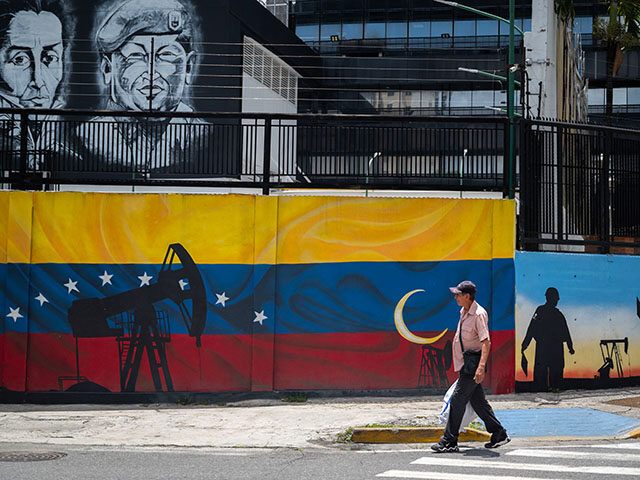CARACAS, Venezuela — The socialist Maduro regime is foreseeing a 27-percent increase in its income after the Biden administration lifted sanctions on the state-owned Petróleos de Venezuela (PDVSA) oil company, according to a report published by Reuters on Tuesday.
Reuters, citing documentation shared with its reporters, claimed that the Venezuelan regime expects to spend roughly $20.5 billion, according to its 2024 budget proposal, which is set to be debated by the socialist-controlled National Assembly and is “likely to be approved.” The projected spending amount for 2024 marks a 39-percent increase from 2023’s budget.
Venezuela’s income from PDVSA’s oil exports and taxes paid by the state oil company will cover some $11.9 billion of the regime’s spending in 2024, which translates to 58 percent of the total, according to the alleged document. PDVSA’s income during 2023 reportedly amounted to $9.34 billion.
“The increase in PDVSA contributions to the budget does not represent the total by which the oil company’s income could rise, because part of its income is held in other funds, about which there is little information,” Reuters explained.
The United States, during the administration of former President Donald Trump, imposed strict sanctions on PDVSA in 2019, banning the U.S. from purchasing Venezuelan oil in response to years of consistent human right atrocities committed by the socialist regime against its own people — that include, but are not limited to, the killing, torture, and rape of political dissidents.
The Biden administration awarded the Maduro regime a generous oil and gas sanctions relief package in October after representatives of dictator Nicolás Maduro and the “opposition” Unitary Platform coalition signed an agreement in Barbados that contains a series of vague promises to hold a “free and fair” presidential election sometime in the second half of 2024.
Since that meeting, Maduro has shown no signs of committing to hold a “free and fair” election next year and has instead doubled down on curbing political dissidents since the signing of the agreement.
Venezuela’s Supreme Justice Tribunal (TSJ), the nation’s top court — controlled in its entirety by the socialist regime — suspended “all of the effects” of the “opposition’s” self-organized October primary election, celebrated shortly after the sanctions relief package was issued by the Biden administration.
Former lawmaker María Corina Machado won the “nullified” primary election to face Nicolás Maduro next year. Machado — who leads Venezuela’s only mainstream center-right party, Vente Venezuela — is currently banned from running for any public office until 2030.
Last week, Maduro ordered a crackdown on members of Vente Venezuela, who now stand accused of “treason” and “conspiring” against the socialist regime’s December 3 sham referendum to annex the Essequibo region. The Essequibo is a territory comprising two-thirds of neighboring Guyana that Venezuela has maintained a historic dispute over since the 19th century. An American citizen, identified as Savoi Jandon Wright, is among those arrested.
Before the Biden sanctions relief package, Washington granted California-based Chevron a license in November 2022 to resume oil production in Venezuela and sell Venezuelan oil in U.S. markets.
The license granted to Chevron reportedly led to a 113-percent growth in trade between Venezuela and the United States in the first half of 2023. It also allowed Venezuela to “stabilize” its oil exports, returning them to levels seen before the imposition of secondary sanctions in 2020 that reinforced the now-lifted 2019 sanctions on PDVSA.
Reports published in September indicated that Chevron is planning to increase its presence in Venezuela with the addition of at least two new oil rigs in the country, aiming to increase its Venezuelan oil output to 200,000 barrels per day (bdp) by the end of 2024.
Venezuela, which holds the world’s largest proven oil reserves, has seen its oil production dramatically reduced after nearly 25 years of socialist mismanagement brought the nation’s oil industry to the brink of complete ruin. Average oil output fell from 3.5 million bpd in 1998 to 751,000 bpd in October, according to OPEC estimates. Maduro has repeatedly promised OPEC that he will boost Venezuela’s oil output to 2 million bpd, but has so far continued to fall short of achieving that goal.
Christian K. Caruzo is a Venezuelan writer and documents life under socialism. You can follow him on Twitter here.

COMMENTS
Please let us know if you're having issues with commenting.